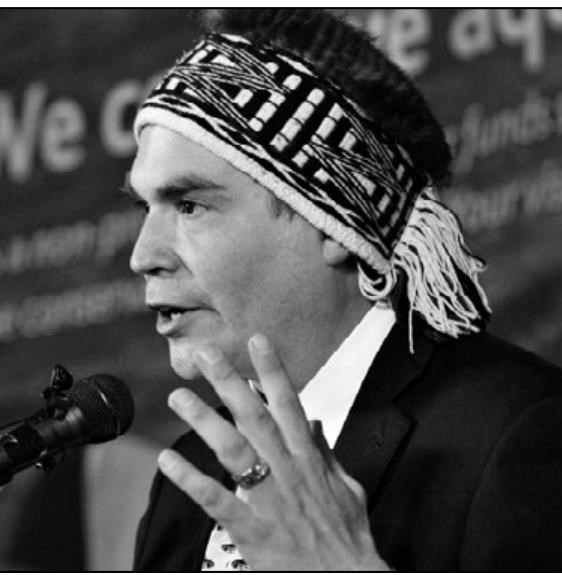Spreading iron on the ocean was like giving the marine environment a vitamin supplement, not an unsupervised geoengineering experiment, say leaders of the Village of Old Massett.
"We don't consider replenishment of a naturally occurring substance to be pollution," said John Disney, Old Massett economic development officer and CEO of the Haida Salmon Restoration Corp., a private corporation funded to the tune of $2.5 million from village reserve funds.
Disney and Old Massett Chief Coun. Ken Rea held a news conference at Vancouver Aquarium on Friday to answer criticism of an experiment that saw 100 tonnes of iron sulphate and iron oxide sprinkled in international waters more than 320 kilometres off the coast of Haida Gwaii.
Critics fear there could be unintended consequences from the resulting 10,000-square-kilometre plankton bloom and say the corporation has violated United Nations and international agreements.
"It's astonishing that this small, confused group of geoengineers think that a village council decision gives them some right to violate international rules and deploy planet-changing schemes for their own commercial profit," said Jim Thomas of the international technology watchdog ETC Group.
"There's a name for that behaviour: geo-piracy. It is heartening to see the Council of the Haida Nation, the United Nations and the Canadian government are all now taking steps toward containing these geo-pirates."
Disney and Rea said they did their homework and that the project does not violate any laws or international agreements.
But Duncan Currie, an international lawyer specializing in the law of the sea, said the project would be defined as dumping.
"The activity is contrary to the aims of the London Convention" on marine pollution and dumping, he said.
Supporters say there is ample evidence that iron increases plankton growth, providing more food for young salmon.
Faced with failing salmon runs and 70 per cent unemployment, the chance to bring back the fish and possibly recoup costs through carbon-credit sales was attractive to Old Massett.
"On a changing planet, we need to take bold steps and the people of Old Massett believe this is the right step," Rea said.
"Time will tell." Young salmon that may benefit from the plankton bloom will not return until 2014.
The iron experiment was designed to replicate what was seen when volcanic ash fell over the Gulf of Alaska in 2008. Two years later, record numbers of sockeye salmon returned to the Fraser River.
While the experiment has transfixed the scientific community, much attention has also been focused on chief scientist Russ George, a controversial California businessman.
Disney brushed aside speculation that the village had been duped by George and described him as a trusted colleague.
"Russ George did not come to dupe us or to sell us a bill of goods," said Disney, adding that the village approached George for help. "Russ has one aim in life: He wants to make the planet a better place," he said.
George's interest in solving climate-change issues has landed him in controversies around the world.
In 2007, George sold the Vatican a carbon offset certificate. He pledged to plant a "Vatican forest" in Hungary, but no trees were planted and the scheme was apparently abandoned after his Planktos Corp. ran into financial difficulties.



